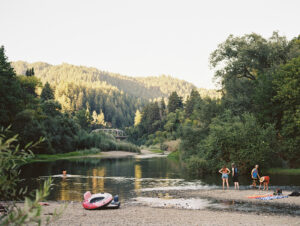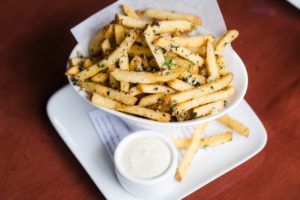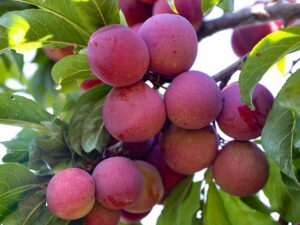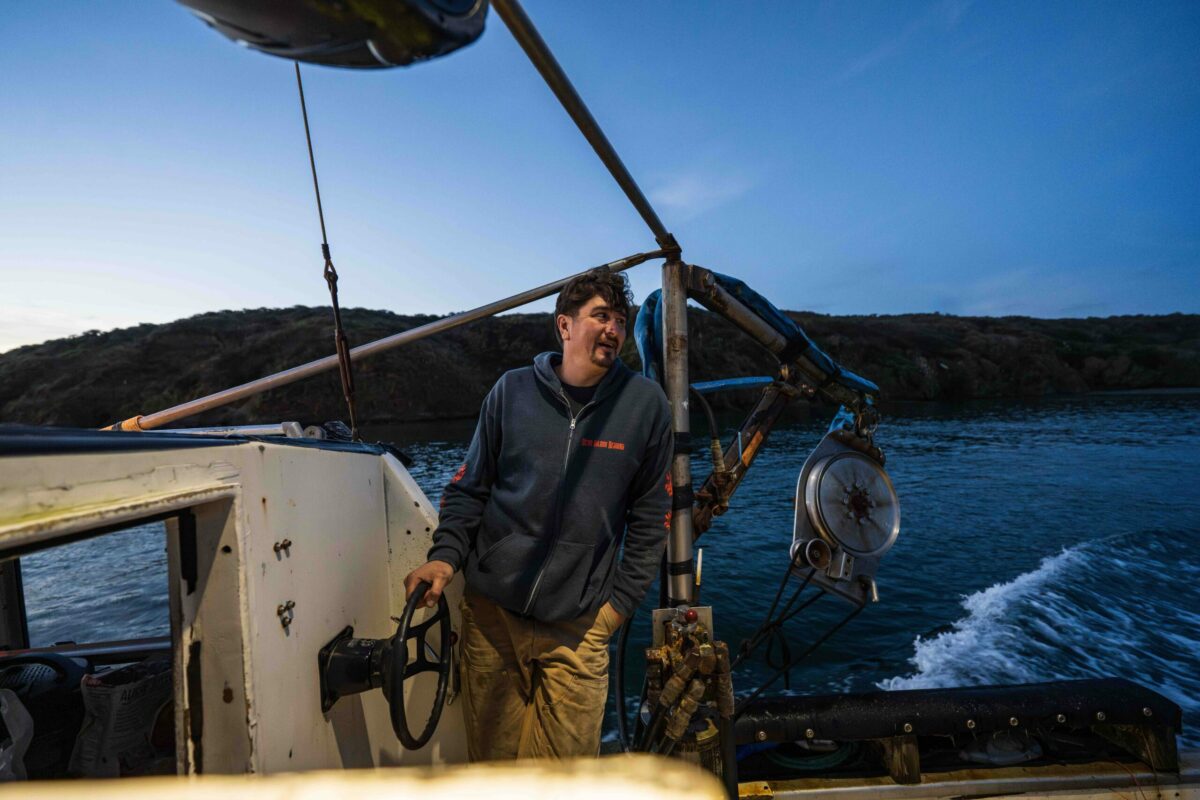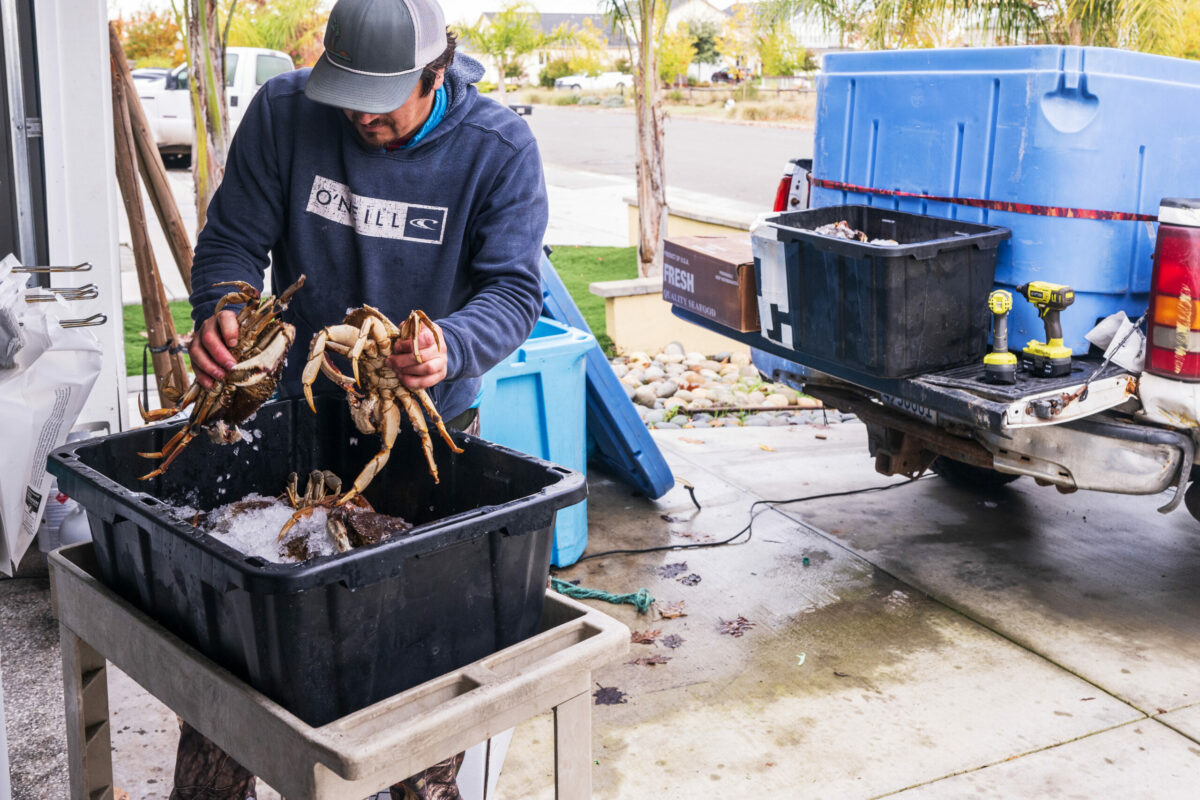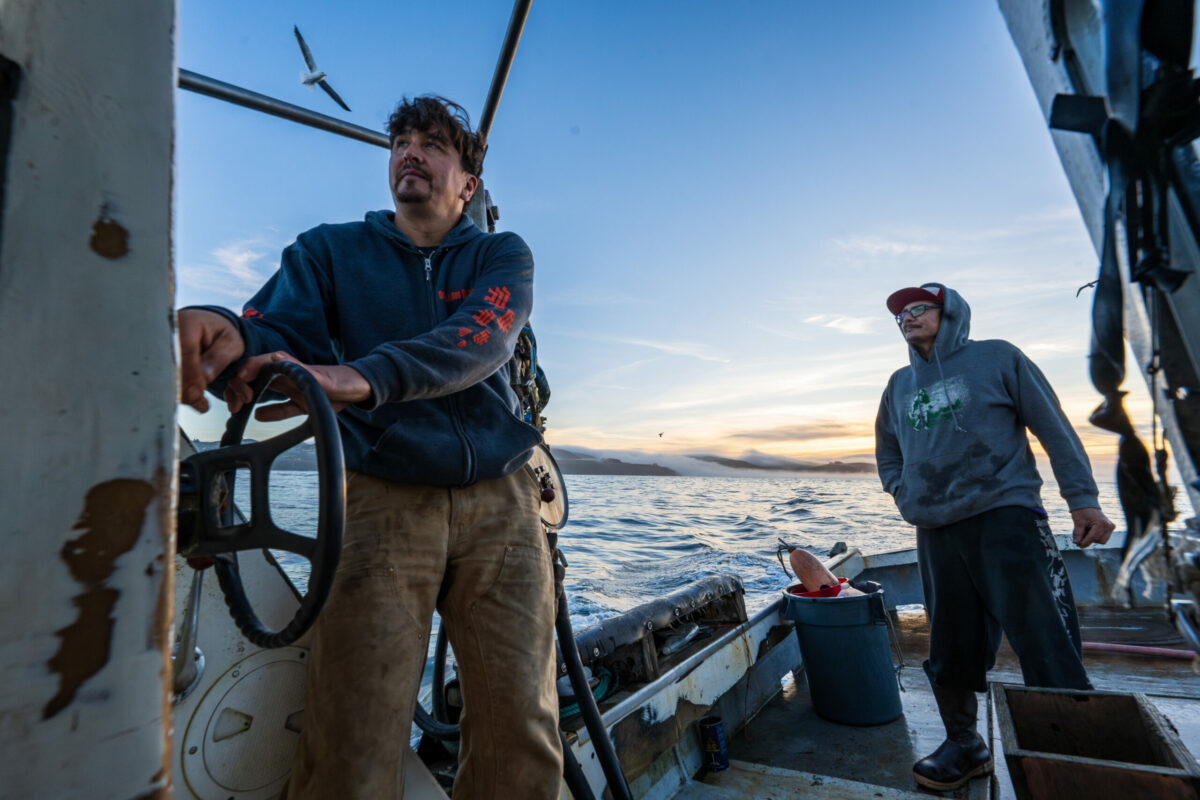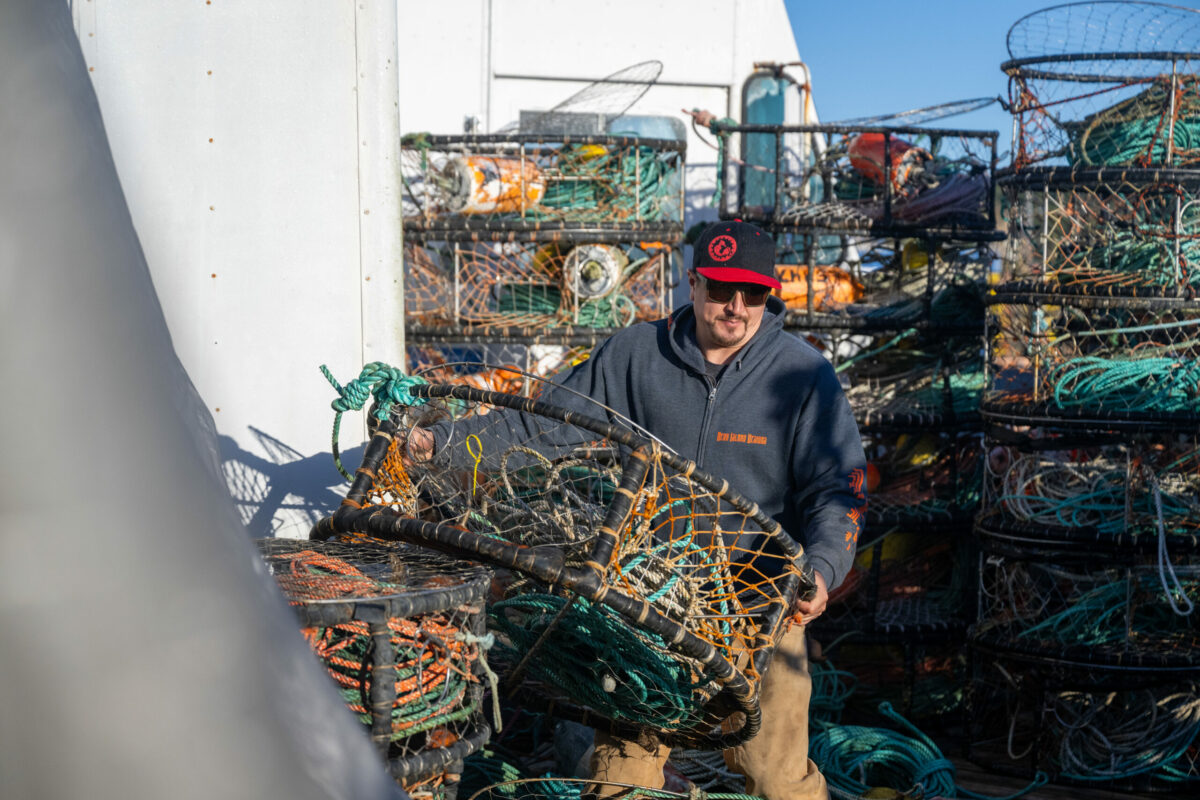It’s still dark when Jonny Jackson arrives at his boat at Spud Point Marina in Bodega Harbor. The water is like glass, almost perfectly still as it reflects the twinkling harbor lights just before dawn. It was the kind of sea Jackson says his maternal Yurok ancestor, a man known as Captain Spott, called for in song as he ferried goods and sometimes people along the coast between Crescent City and Klamath in a dugout canoe more than a hundred years ago.
Jackson learned the song from an anthropologist’s recording as a child. Today, he sings it softly in Yurok , his clear baritone repeating the lyrics like a soothing lullaby: “It’s telling the ocean the birds want it calm. ‘Can you make it calm for us? The birds want it calm. Can you make it calm for us?’ And the ocean calms.”
This particular morning, there is no fishing, as Jackson and his brother, Bob, wait out the opening of the delayed North Coast crab season. Instead, there are songs and stories as the two tinker around with small repairs on board Wild Winds, Jackson’s rugged 33-foot fiberglass boat. By January, they’ll be pulling 20-hour days, at sea for multiple days at a time, capitalizing upon the relative bounty of crab in the early season.
Jackson is the owner of Pacific Native Fisheries, a small, direct-to-consumer seafood business, operating a single boat out of Spud Point Marina in Bodega Harbor. He began door-to-door deliveries of fresh crab, salmon, rockfish, and halibut after struggling to keep afloat during the pandemic. Jackson likes delivering his seafood because of the direct link to his customers, he says. “I want them to call me their fisherman. Having that kind of connection with your food is important.”
It’s a challenge to the local seafood industry status quo that has resonated with customers. At times, they have overwhelmed Jackson’s small operation with orders, an operation that is one of only a handful of Indigenous-run fishing vessels on the entire California coast.
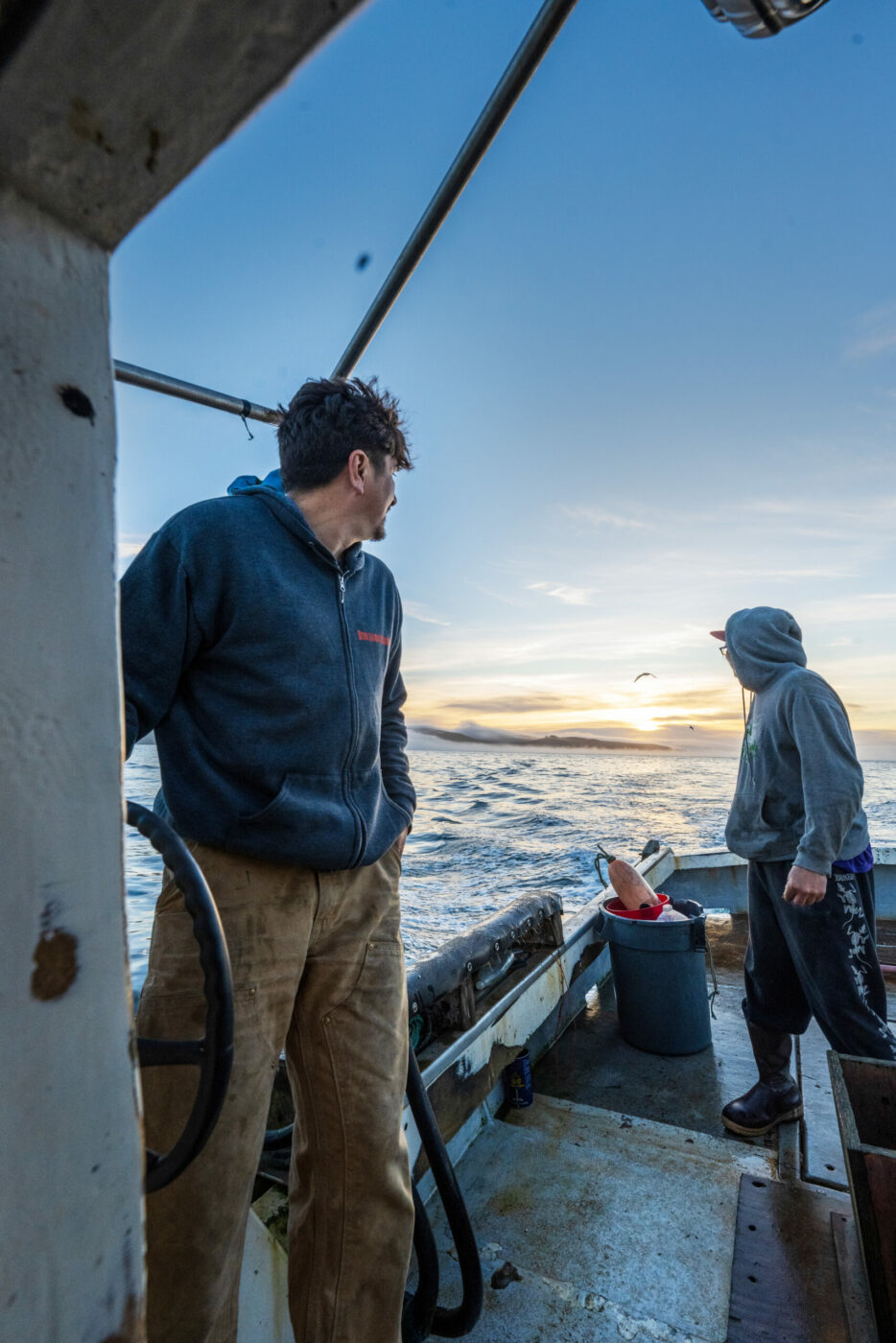
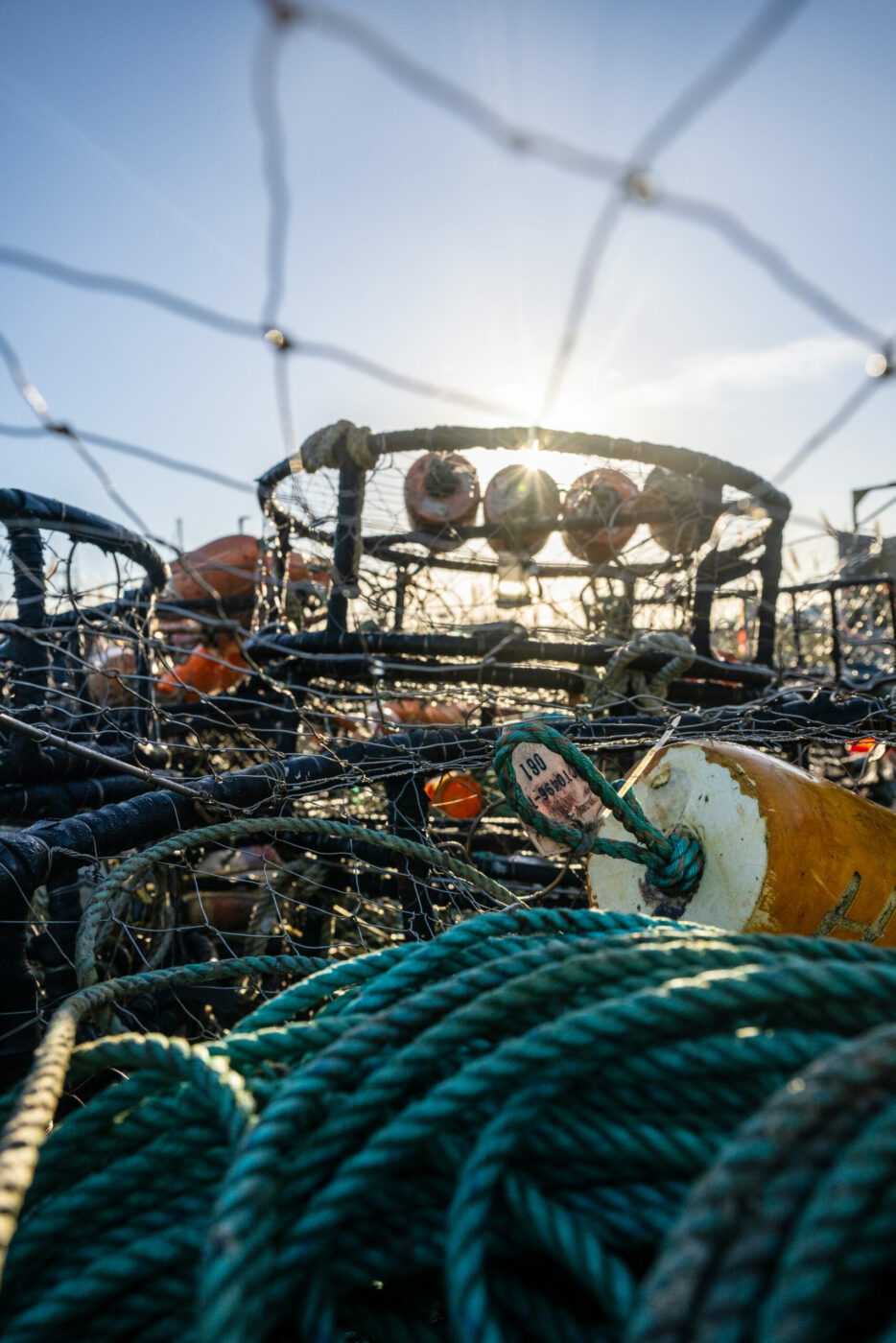
Jackson learned to stay true to the source of his food while growing up a member of the Yurok Tribe in the town of Requa, at the mouth of the Klamath River. “I fished growing up for food and sustenance. It was for connection with our culture,” Jackson says. “We caught salmon, dug clams, and picked acorns, stuff like that.”
Jackson never considered commercial fishing a career. But he got a taste of the industry as a student at Santa Rosa Junior College in the early 2000s. He had been recruited to play soccer at SRJC and was studying to become a calculus teacher while working part time at a sporting goods store. But juggling classwork and sports didn’t leave enough time to earn the money he needed for books and rent.
On a trip home for a tribal salmon festival, he asked an elder for permission to use his fishing hole. The spot wasn’t being fished that year because the price the tribe had been offered for its salmon was too low—just one dollar a pound.
Everybody else that’s touching (the crab) is making more money than the fisherman. That’s hard. That’s why a lot of fishermen can’t make it. It doesn’t pan out.
“I was fishing for two hours, and I had to pull in my net, because I was going to sink my boat,” said Jackson. He caught close to 800 pounds of salmon that day. After giving the elder his cut, Jackson borrowed a truck, got a permit to sell, and hustled back to Santa Rosa—where he sold the salmon for five dollars a pound.
“In between class and soccer practice, I slung salmon out of my truck. That was the first time I’d ever sold fish. And I created a small little market niche,” he says.
His salmon side hustle got Jackson through school. But after graduation, he moved back north and took a job at the tribal housing authority. It would be several years before he sold another fish.
In 2008, a friend told him about an opportunity on a fishing boat in Crescent City. In addition to the freedom and the potential for a good payday, the physical demands of commercial fishing appealed to Jackson. He liked the job well enough that in 2014, he bought Wild Winds and returned to Sonoma County, pulled by close friendships from his college days and greater opportunities for his two young children.
A wiry athleticism, developed over years of playing soccer, helps with lifting and stacking crab pots that weigh 110 pounds when empty. Add to that a rocking boat, 15 pounds of wet rope, a 5-pound buoy, and the weight of the crab, and it’s no surprise that Jackson and his brother routinely each lose a half-pound a day while out on the ocean. “Out of all the fisheries, crabbing is probably the most physically demanding. I’ve shrimped too, and nothing even comes close to commercial crabbing,” he says.
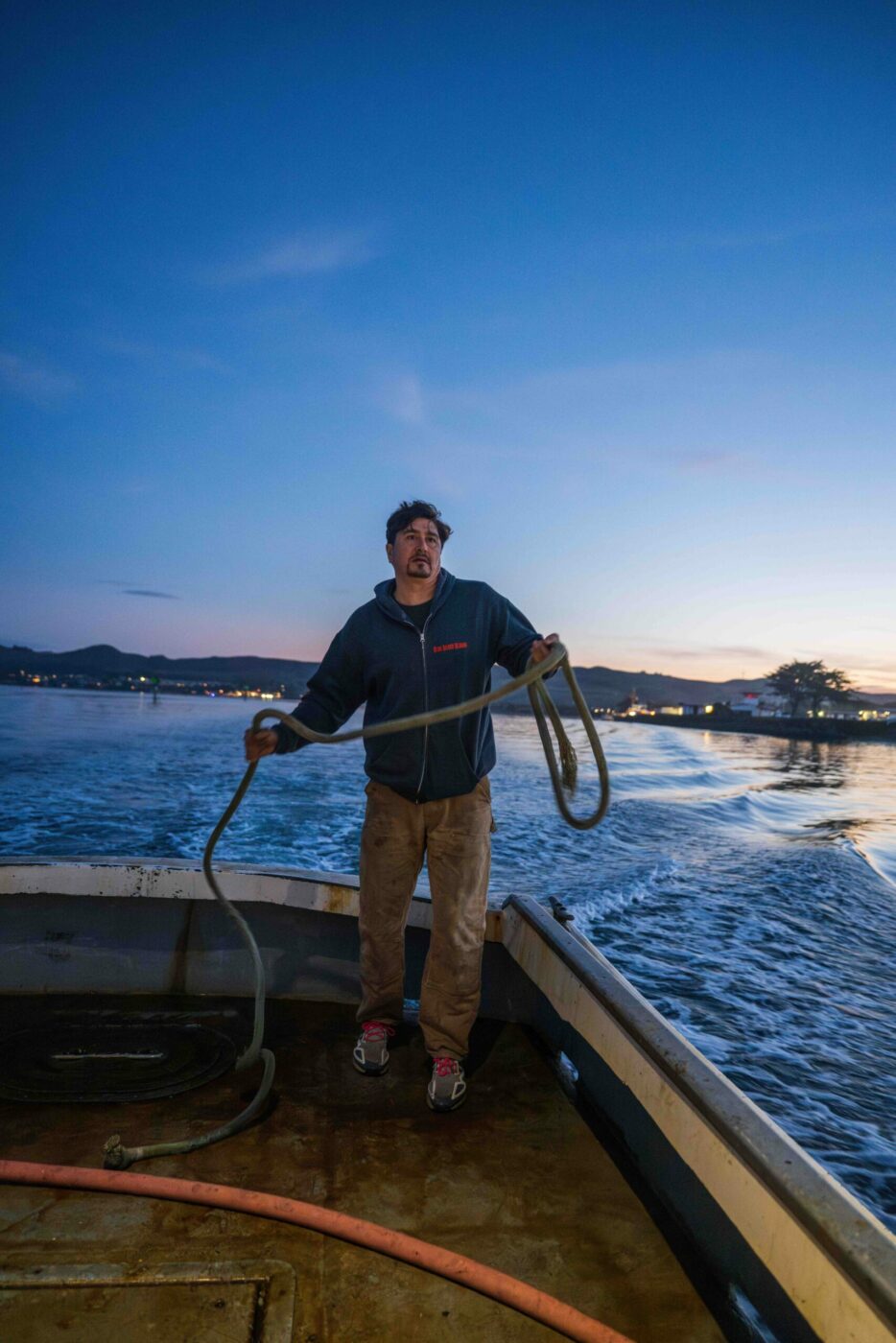
The early days of the season are long, as fishermen take advantage of the relative bounty of Dungeness available to meet pent-up consumer demand. Jackson and his brother will sleep in shifts and fish for several days at a time, unless a storm shuts them down. The combina-tion of rough work and salt water makes their hands swell into what the fishermen call “crab claw.” “Our hands… it’s amazing the size they get in the first week,” he says. “They’re like sausages, they’re so swollen.”
For one who thrives on the challenges of commercial fishing, perhaps it’s little surprise that one of his most harrowing days ever on the job was also one of his best.
Jackson and his crew were aboard ‘Wild Winds’ between storms, on a final run into San Francisco Bay with the last of their crab pots. The winds suddenly kicked up to close to 5 0 knots, with swells of 2 0 feet. And coming into and out of the harbor is the most dangerous time for the crew, as swells become crashing waves that can overwhelm the boat.
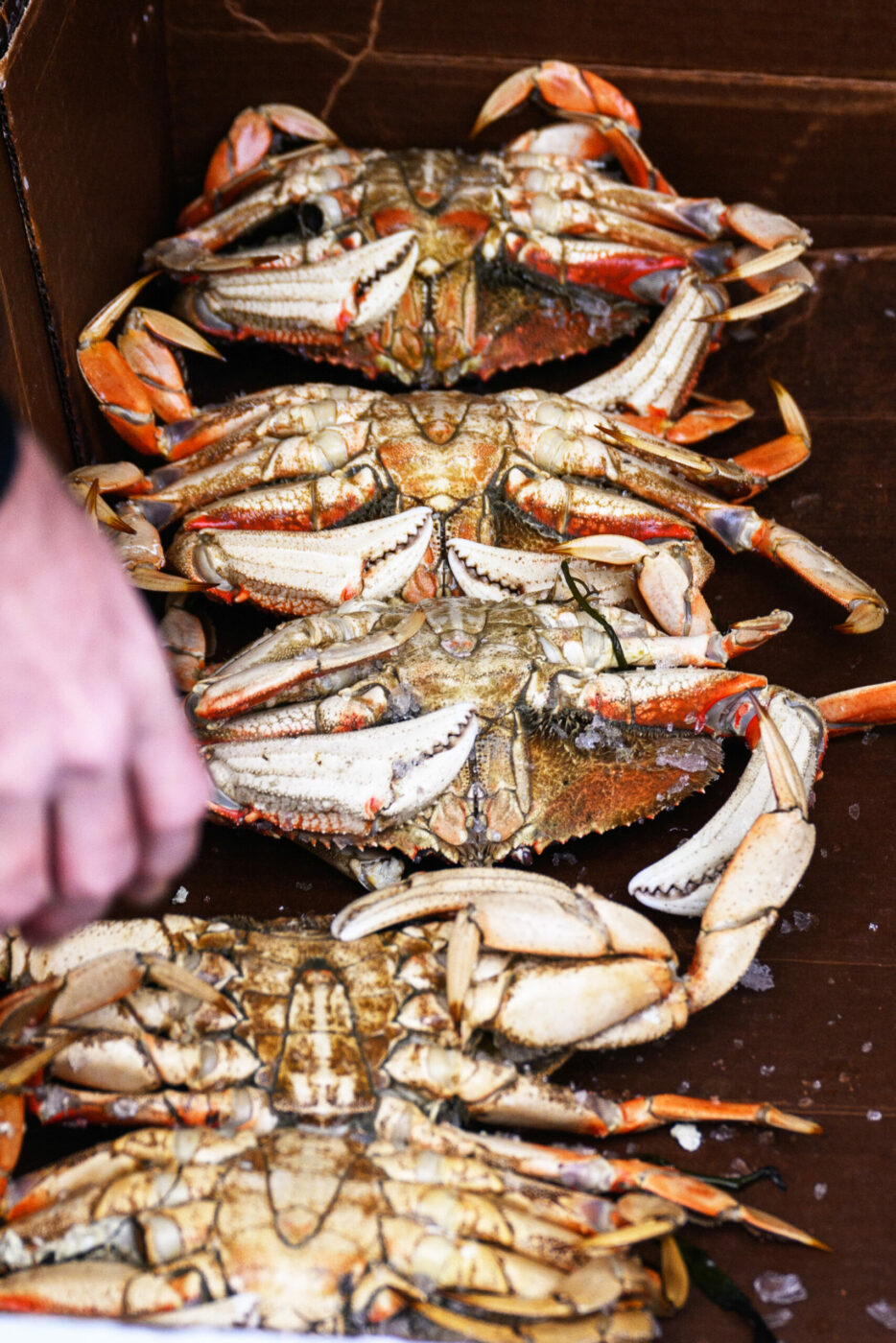
All Jackson could see from his position on the outside helm was a wall of water in front of him and another behind. “Every single move that I made had to be right on point,” he recalls. “Here’s the waves coming over the top and spraying us with water, the boat’s rocking, and I just get this huge smile on my face, and I realize, ‘Oh my god, this is my happy place.’ (And then) I immediately thought, this is not safe for a long-term life plan.”
But despite the risks, Jackson believes fishing is what he was meant to do. And the more connected he is to his culture, the better he is at his job.
“I know this seems weird, but feeling what the waves are going to do, or feeling how the ocean is moving—I believe I do it well. And I think it’s something that came from being Yurok. We’re a water people.”
Fishing, by its nature, has always been a feast or famine profession, but the gaps between those lean times seem to be moving closer together. With the canceled salmon season in 2 0 2 3 and almost yearly delays on crab the past few years, the industry is even harder to stick with—especially, he says, when buyers are paying essentially the same prices they paid three decades ago.
That frustration his Yurok tribal elders felt at being offered just one dollar a pound for salmon in the early 2000s echoes the feelings of Jackson and others in the North Coast fleet today. “Everybody else that’s touching (the crab) is making more money than the fisherman. That’s hard,” he says. “That’s why a lot of fishermen can’t make it. It doesn’t pan out.”
“I know this seems weird, but feeling what the waves are going to do, or feeling how the ocean is moving—I believe I do it well. And I think it’s something that came from being Yurok. We’re a water people.
Which is why Jackson is sticking with his delivery service, although it’s more work after multiple days on the ocean. Back on land, he must answer customer emails and texts, then clean the fish and cook the crab before doling it out to a small team of drivers to make deliveries. Many of his customers are in Sonoma County, but he’ll deliver as far away as Sacramento and San Jose.
Jackson figures the setup is still better for him, because he gets paid what he’s worth, and it’s better for the consumers who get seafood pulled from the ocean mere hours ago, not days. “The sooner you get from water to table is the name of the game.”
He believes this sea-to-table approach is what the multi-million dollar industry needs to be economically sustainable. The continual reining in of the commercial crabbing fleet is taking its toll, Jackson says. When he first started 1 5 years ago, having a California crabbing permit was like hitting the major leagues. “Now it’s hard to give these things away.”
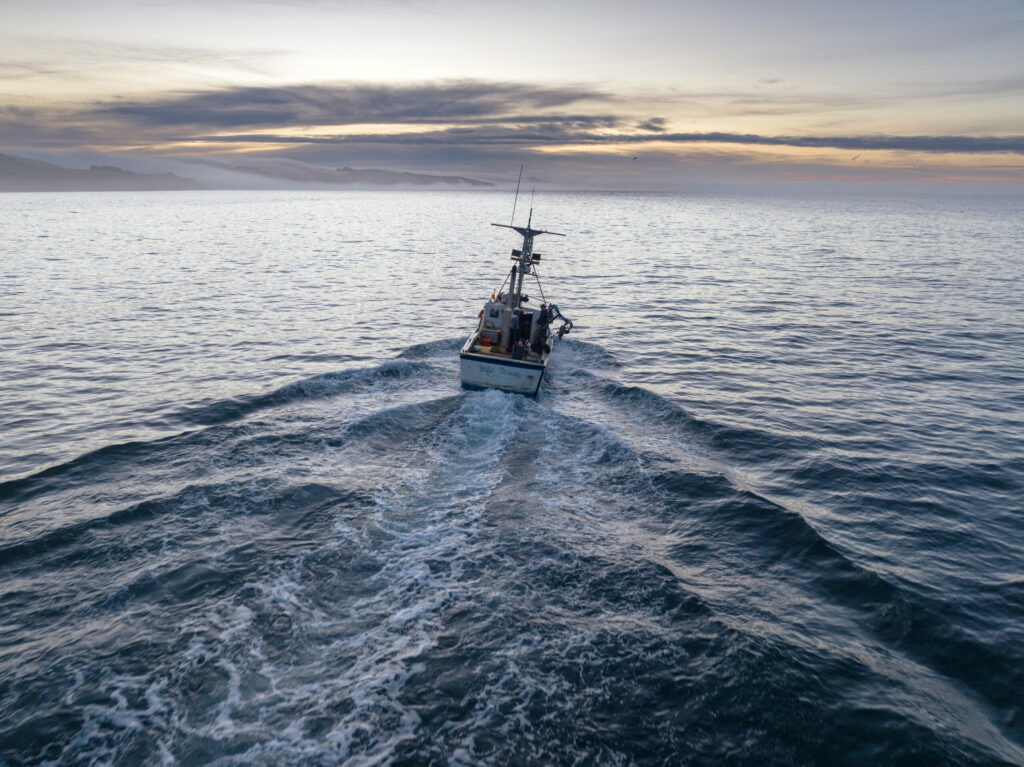
Environmental sustainability is key, too. Jackson wants to cause as little harm to the marine ecosystem as possible—after all, it is his livelihood. He and his brother take it further than many others, with a “leave no trace” approach at sea. While dumping garbage overboard in the open water is technically legal, he explains, he keeps all the waste onboard, disposing of it when he returns to shore. It’s an ethos he was taught hiking the beaches and trails of his native Humboldt County.
Now in his early 4 0 s, he knows his days as captain of a fishing boat won’t last forever. As he’s gotten older, the thrill of being at the helm in rough seas has given way to an appreciation for the serenity he feels when seas are calm.
Whale sightings are common as he and his brother leave Bodega Harbor, heading south to fish off the coast of Point Reyes. When the winter weather is perfectly clear, he can see Alamere Falls in the distance, tumbling onto Wildcat Beach.
“I find myself out there just enjoying my surroundings and being there in that moment… and I get it at work. I don’t think I can give this job up. I think this is what I want to do for the rest of my life.”
For information on the latest catch and a link to order, visit Pacific Native Fisheries on Facebook.


